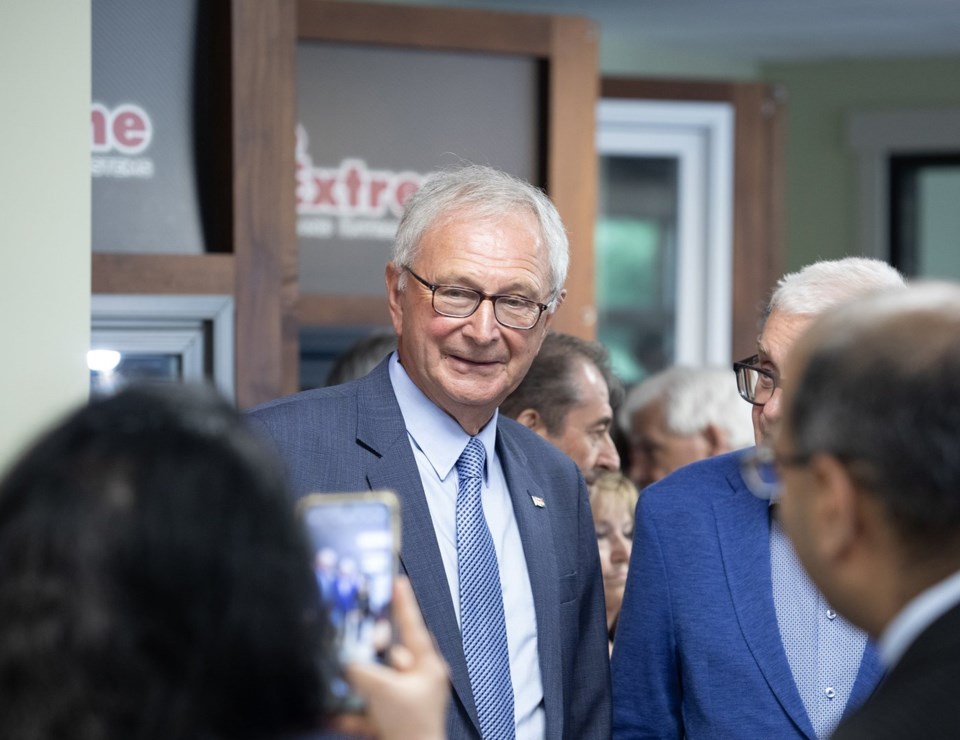FREDERICTON — The six chiefs of the Wolastoqey Nation in New Brunswick have released results from a pre-election questionnaire sent to the province's political parties, saying they are "particularly disappointed" with responses from the governing Progressive Conservatives.
The Indigenous group, which represents six communities, says that in August the parties were sent questions on Indigenous treaty rights, titles, policing and systemic racism.
"We find the Progressive Conservative party position on Wolastoqey treaty rights deeply troublesome and offensive," the chiefs said in a statement released Monday.
"The Progressive Conservative party response notes that they ‘respectfully disagree … that land title has been unceded’ and repeats their disinformation narrative about private landholders."
The reference to unceded territory refers to the fact that these First Nations never relinquished or legally signed away their lands to the Crown or to Canada.
The chiefs' statement also accuses the Tories of fearmongering.
"We are looking for a government that wants to build a forward-looking relationship with First Nations, not a backward, regressive position," the statement says.
The Progressive Conservative party declined to respond to the chiefs assertions.
Nicole O'Byrne, an associate professor at University of New Brunswick's faculty of law, said the issue of Aboriginal and treaty rights is spelled out in Section 35 of the Constitution.
As well, she said the Peace and Friendship Treaties that ended hostilities with Britain in the 1720s and a 1763 royal proclamation that outlined the relationship between First Nations and the Crown recognize the inherent rights of Indigenous people to govern their own affairs.
"This has often been ignored by federal and provincial governments," O'Byrne said. "The recognition of Aboriginal and treaty rights as an integral part of the Canadian Constitution places on obligation on the federal and provincial governments to give meaningful recognition to this goal."
These rights are derived from recognition that Indigenous people "occupied this territory since time immemorial," O'Byrne said. "As such, the federal and provincial governments are under an obligation to implement policy that integrates and reflects this reality."
A land claim filed in December 2021 by the six chiefs says private and public corporations have long exploited resources on Wolastoqey lands. The chiefs want the land returned, compensation for the use of that land for the last 200 years and a title to the entire area.
Premier Blaine Higgs, who is expected to call for a 33-day election campaign on Thursday, has said the title claim, which covers 60 per cent of New Brunswick’s territory, has far-reaching implications.
In October 2021, New Brunswick government employees were ordered to stop making territorial or title acknowledgments in reference to Indigenous lands because the province is involved in a series of legal actions initiated by First Nations.
Meanwhile, the statement from the chiefs noted that New Brunswick is among the only provinces in Canada that does not have a "clear and robust revenue-sharing agreement" with First Nations.
The Higgs government’s cancellation of tax agreements has hindered the ability of Frist Nations communities to address things like basic social aid and housing, the six chiefs say.
The Progressive Conservative party is the only party that did not agree to reinstate a revenue-sharing agreement, the chiefs said.
"Instead, their response states they prefer to have our communities tied to applying for assistance on a case-by-case basis, making our communities more reliant on government systems .... This is a regressive and paternalistic approach to Indigenous, nation-to-nation relationships."
The chiefs said the Green and Liberal parties acknowledge the need for initiatives that combat systemic racism in New Brunswick.
"The Progressive Conservative party response looks like a departmental list of patchwork past promises — many that have nothing to do with Wolastoqey communities," they said.
This report by The Canadian Press was first published Sept. 18, 2024.
Hina Alam, The Canadian Press



